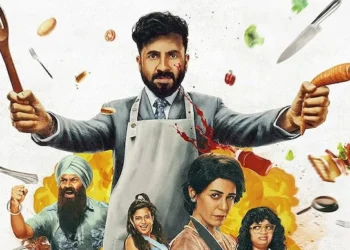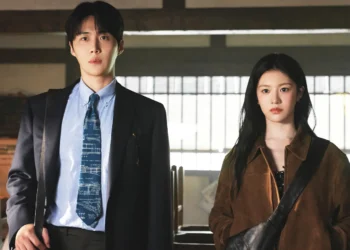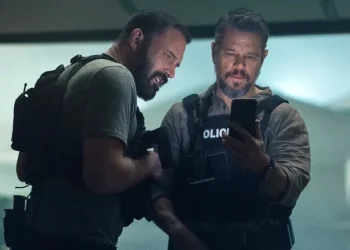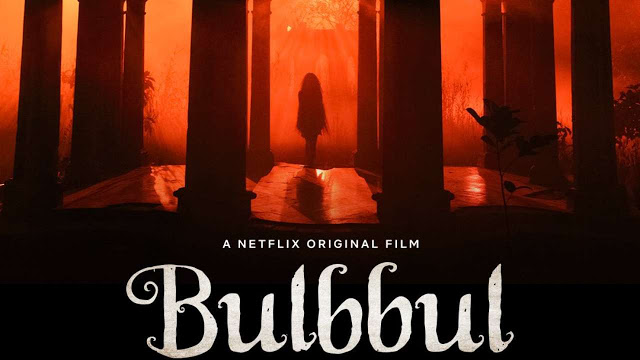Martyn Brabbins stands as one of the versatile and revered figures on the earth of classical music in the present day. With a profession spanning over three a long time, his journey from learning conducting below the legendary Ilya Musin in Leningrad to main world-renowned orchestras and operas is a testomony to his unwavering dedication and artistry. Not too long ago appointed Chief Conductor of each the Malmö Symphony and the Symphony Orchestra of India, Brabbins is ready to start these roles within the 2025/26 season, marking one other milestone in his exceptional profession.
Recognized for his deep dedication to music, Brabbins has performed lots of of world premieres and is an advocate for British composers, bringing their works to world audiences. His tenure as Music Director of the English Nationwide Opera from 2016 to 2023 was marked by ground-breaking performances, together with his swansong with David Alden’s Peter Grimes, a excessive level in his operatic management.
Brabbins has additionally made a major influence in symphonic music, showing with prime worldwide orchestras such because the Royal Concertgebouw, the San Francisco Symphony, and the BBC Symphony, and incomes accolades for his intensive discography of almost 150 recordings. Acknowledged with prestigious awards such because the RPS Conductor Award, three Gramophone Awards, and the Cannes Opera Award, his contributions to music are celebrated throughout the globe.
On this interview, Brabbins displays on the highlights of his illustrious profession, shares his imaginative and prescient for his new roles, and discusses the profound influences which have formed him as a conductor and educator.
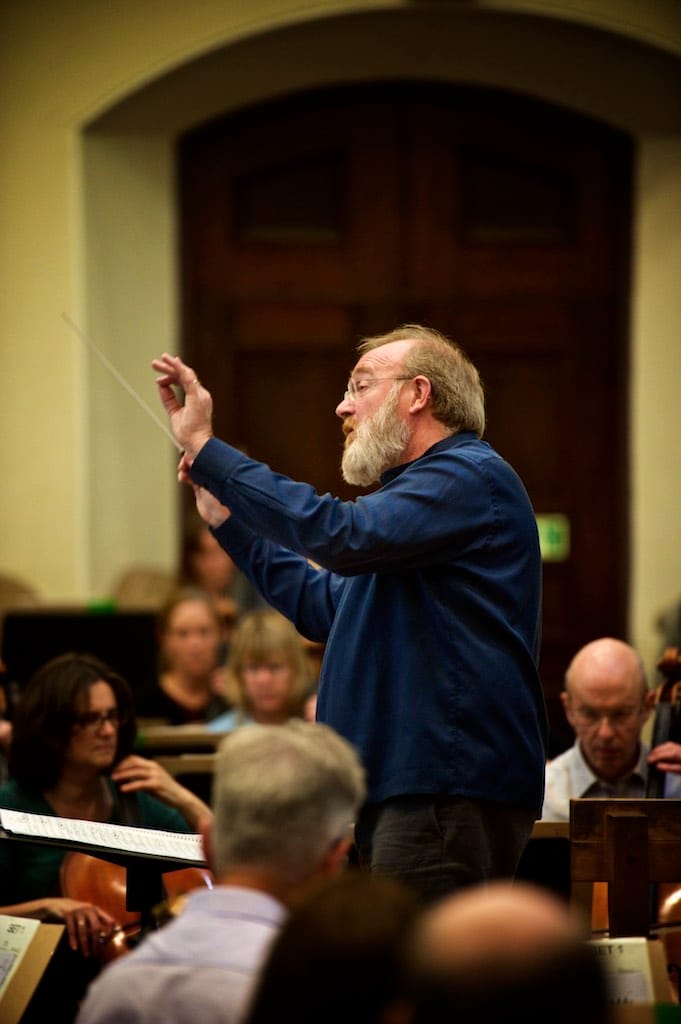
Nikhil Sardana: Along with your upcoming appointments as Chief Conductor of the Malmö Symphony Orchestra and the Symphony Orchestra of India, how do you intend to form the inventive route of those ensembles?
Martyn Brabbins: It’s an honour and a privilege to tackle these roles, and I’m completely thrilled concerning the alternatives forward. Each orchestras have positioned their belief and confidence in me, which is deeply humbling. Shaping the inventive route of any group is a collaborative endeavour. It entails significant session with the administration groups, the inventive oversight committees, and—most significantly—the musicians themselves.
For Malmö, particularly, there’s a sturdy sense of possession and pleasure among the many orchestra’s members, particularly as they have a good time their centenary. They take an lively curiosity within the orchestra’s future, and their enter is invaluable. Equally, the viewers performs a vital function. Whether or not by way of concert events at dwelling, excursions, or recordings, our purpose is to create experiences that resonate with our listeners.
In Mumbai, the Symphony Orchestra of India operates below a singular mannequin, with its seasonal construction and its visionary management in Khushroo Suntook. He has carried out a rare job in championing Western classical music in India. My intention is to construct on that basis, elevating the orchestra’s requirements whereas nurturing its inventive ambitions. Throughout each ensembles, the purpose is to encourage, innovate, and regularly try for inventive excellence.
NS: You’re famend for championing British composers and conducting lots of of world premieres. What drives your dedication to British music, and the way do you method deciphering new works?
MB: My journey with British music started early. After my undergraduate research, I pursued a grasp’s diploma in composition. Whereas I ultimately centered on conducting, my background in composition fostered a deep respect for the craft. I attended quite a few concert events of recent music throughout my scholar years, immersing myself in works by Boulez, Ligeti, and Lutosławski, alongside the good symphonic repertoire.
This early publicity gave me each an appreciation for modern music and an empathy for composers. Having studied composition myself, I perceive the immense mental and emotional effort required to create music. It’s a profoundly difficult endeavour, and that understanding informs my collaborations with composers.
When deciphering new works, I method them with curiosity and humility. Dwelling composers, like the good masters of the previous, try to speak one thing significant. My function is to decipher their intentions—not solely the technical points of their scores but in addition their emotional and inventive motivations. This dialogue is commonly deeply rewarding and supplies invaluable perception into their inventive world.
NS: With almost 150 recordings throughout a broad repertoire, how do you resolve which initiatives to pursue? Are there any works or composers you’re particularly eager to file sooner or later?
MB: Within the early levels of my recording profession, I primarily labored on initiatives proposed by labels like Hyperion and NMC. These had been typically centered on uncared for repertoire or modern music, such because the Romantic Piano Concerto sequence and works by Scottish composers. These recordings had been alternatives to shine a lightweight on lesser-known however deserving music.
As my profession progressed, I’ve had larger affect over my initiatives. Latest highlights embody symphony cycles of Walton, Tippett, and Vaughan Williams. Every of those has been a profound journey. Tippett, for instance, is a composer whose imaginative and ingenious works deserve extra recognition, and I hope to have performed a task in bringing his music again into focus.
Trying forward, I’m eager to discover recording alternatives with each Malmö and the SOI. Nonetheless, the recording business has developed, and plenty of elements—inventive, financial, and logistical—decide what is possible. That mentioned, I’m optimistic. With the precise partnerships and imaginative and prescient, I imagine we are able to create recordings that showcase the distinctive strengths of each orchestras whereas contributing to the broader musical panorama.
NS: Your tenure as Music Director of the English Nationwide Opera spanned vital inventive milestones. Trying again, which moments or productions stand out as probably the most defining?
MB: I served as music director for about seven and a half years. It was an extremely inspiring place—main a musical group of such stature, with its distinctive orchestra, refrain, and music workers, was at all times demanding however profoundly fulfilling.
Certainly one of my first productions was Mozart’s The Marriage of Figaro, an exquisite alternative to reveal versatility throughout repertoire. That very same season, I performed Richard Strauss’s Salome. The expertise was transformative; Strauss’s extraordinary rating stays one of the musically inspiring works I’ve ever had the privilege to conduct.
Later, the 2 productions that capped my tenure had been significantly memorable. The primary was Das Rheingold, directed by Richard Jones. Universally acknowledged as a powerful inventive success, it was a collaboration the place each ingredient aligned completely—the English translation, the very good forged, meticulous rehearsals, impressed route, beautiful design by Stewart Lang, and unimaginable lighting. The vitality and keenness of the orchestra and the involvement of the refrain, though they didn’t sing within the piece, elevated the manufacturing into one thing really distinctive.
The opposite was a revival of David Alden’s manufacturing of Britten’s Peter Grimes, broadly considered maybe the best opera within the English language. Alden’s imaginative and prescient for the work was as near perfection as one might think about, and his management impressed everybody concerned. The refrain was nothing wanting electrifying.
NS: As Prince Consort Professor of Conducting on the Royal Faculty of Music and Visiting Professor on the Royal Conservatoire of Scotland, what key insights or philosophies do you intention to impart to the subsequent era of conductors?
MB: Educating has turn into an immensely rewarding a part of my life. I used to be lucky to review with Ilya Musin, one of many biggest conducting pedagogues of all time, throughout my two years in Leningrad. That have profoundly formed me, and I really feel a accountability to offer again.
On the Royal Faculty of Music, I conduct the orchestra whereas the conducting college students observe and help, and I additionally lead masterclasses. On the Royal Conservatoire in Glasgow, the place I’m extra deeply concerned, I mentor college students one-on-one, together with by way of progressive strategies like common Zoom classes, which grew to become invaluable throughout the pandemic. This flexibility permits me to remain related with college students whereas sustaining my skilled engagements.
My instructing philosophy is deeply private. Conducting is a posh and multifaceted self-discipline, and I imagine in understanding every scholar as a person. Solely by addressing their distinctive challenges can I assist them unlock their potential. My method can be knowledgeable by Musin’s teachings, which emphasised the connection between gesture and sound. Conducting isn’t about beating time; it’s about carrying the sound and bodily embodying the music. The subtleties of gesture—the breath and movement—can profoundly affect how musicians reply.
I push my college students to develop precision, not simply in technical execution however within the nuances that convey a bit to life. Skilled musicians are extremely attuned to even the slightest gesture, so the conductor’s function calls for readability and function. I’m demanding as a result of the stakes are excessive, however I additionally try to encourage confidence and artistry in my college students.
NS: With such a prolific and diverse profession, what targets or challenges do you continue to aspire to attain within the coming years, each on the rostrum and past?
MB: I’m dedicated to repeatedly enhancing—whether or not that’s conducting Mahler with larger depth or changing into a greater communicator with musicians, audiences, and colleagues. Coming from a humble background, I really feel extremely lucky to have discovered a path into classical music. My dad and mom had restricted schooling; my father, a World Battle II veteran, confronted well being challenges that left our household with little monetary means. Becoming a member of an novice brass band was a life-changing second for me. They gave me an instrument and classes, and I practiced diligently. With out that serendipitous alternative, my life might need taken a really completely different course.
I carry that sense of gratitude with me on daily basis, and I see music as a rare pressure for good. My final purpose is to share its transformative energy—whether or not by way of efficiency, schooling, or collaboration. Music is, I imagine, an important a part of humanity, and if I can assist others perceive and embrace that, I’ll take into account my work worthwhile.
Martyn Brabbins stands as one of the versatile and revered figures on the earth of classical music in the present day. With a profession spanning over three a long time, his journey from learning conducting below the legendary Ilya Musin in Leningrad to main world-renowned orchestras and operas is a testomony to his unwavering dedication and artistry. Not too long ago appointed Chief Conductor of each the Malmö Symphony and the Symphony Orchestra of India, Brabbins is ready to start these roles within the 2025/26 season, marking one other milestone in his exceptional profession.
Recognized for his deep dedication to music, Brabbins has performed lots of of world premieres and is an advocate for British composers, bringing their works to world audiences. His tenure as Music Director of the English Nationwide Opera from 2016 to 2023 was marked by ground-breaking performances, together with his swansong with David Alden’s Peter Grimes, a excessive level in his operatic management.
Brabbins has additionally made a major influence in symphonic music, showing with prime worldwide orchestras such because the Royal Concertgebouw, the San Francisco Symphony, and the BBC Symphony, and incomes accolades for his intensive discography of almost 150 recordings. Acknowledged with prestigious awards such because the RPS Conductor Award, three Gramophone Awards, and the Cannes Opera Award, his contributions to music are celebrated throughout the globe.
On this interview, Brabbins displays on the highlights of his illustrious profession, shares his imaginative and prescient for his new roles, and discusses the profound influences which have formed him as a conductor and educator.

Nikhil Sardana: Along with your upcoming appointments as Chief Conductor of the Malmö Symphony Orchestra and the Symphony Orchestra of India, how do you intend to form the inventive route of those ensembles?
Martyn Brabbins: It’s an honour and a privilege to tackle these roles, and I’m completely thrilled concerning the alternatives forward. Each orchestras have positioned their belief and confidence in me, which is deeply humbling. Shaping the inventive route of any group is a collaborative endeavour. It entails significant session with the administration groups, the inventive oversight committees, and—most significantly—the musicians themselves.
For Malmö, particularly, there’s a sturdy sense of possession and pleasure among the many orchestra’s members, particularly as they have a good time their centenary. They take an lively curiosity within the orchestra’s future, and their enter is invaluable. Equally, the viewers performs a vital function. Whether or not by way of concert events at dwelling, excursions, or recordings, our purpose is to create experiences that resonate with our listeners.
In Mumbai, the Symphony Orchestra of India operates below a singular mannequin, with its seasonal construction and its visionary management in Khushroo Suntook. He has carried out a rare job in championing Western classical music in India. My intention is to construct on that basis, elevating the orchestra’s requirements whereas nurturing its inventive ambitions. Throughout each ensembles, the purpose is to encourage, innovate, and regularly try for inventive excellence.
NS: You’re famend for championing British composers and conducting lots of of world premieres. What drives your dedication to British music, and the way do you method deciphering new works?
MB: My journey with British music started early. After my undergraduate research, I pursued a grasp’s diploma in composition. Whereas I ultimately centered on conducting, my background in composition fostered a deep respect for the craft. I attended quite a few concert events of recent music throughout my scholar years, immersing myself in works by Boulez, Ligeti, and Lutosławski, alongside the good symphonic repertoire.
This early publicity gave me each an appreciation for modern music and an empathy for composers. Having studied composition myself, I perceive the immense mental and emotional effort required to create music. It’s a profoundly difficult endeavour, and that understanding informs my collaborations with composers.
When deciphering new works, I method them with curiosity and humility. Dwelling composers, like the good masters of the previous, try to speak one thing significant. My function is to decipher their intentions—not solely the technical points of their scores but in addition their emotional and inventive motivations. This dialogue is commonly deeply rewarding and supplies invaluable perception into their inventive world.
NS: With almost 150 recordings throughout a broad repertoire, how do you resolve which initiatives to pursue? Are there any works or composers you’re particularly eager to file sooner or later?
MB: Within the early levels of my recording profession, I primarily labored on initiatives proposed by labels like Hyperion and NMC. These had been typically centered on uncared for repertoire or modern music, such because the Romantic Piano Concerto sequence and works by Scottish composers. These recordings had been alternatives to shine a lightweight on lesser-known however deserving music.
As my profession progressed, I’ve had larger affect over my initiatives. Latest highlights embody symphony cycles of Walton, Tippett, and Vaughan Williams. Every of those has been a profound journey. Tippett, for instance, is a composer whose imaginative and ingenious works deserve extra recognition, and I hope to have performed a task in bringing his music again into focus.
Trying forward, I’m eager to discover recording alternatives with each Malmö and the SOI. Nonetheless, the recording business has developed, and plenty of elements—inventive, financial, and logistical—decide what is possible. That mentioned, I’m optimistic. With the precise partnerships and imaginative and prescient, I imagine we are able to create recordings that showcase the distinctive strengths of each orchestras whereas contributing to the broader musical panorama.
NS: Your tenure as Music Director of the English Nationwide Opera spanned vital inventive milestones. Trying again, which moments or productions stand out as probably the most defining?
MB: I served as music director for about seven and a half years. It was an extremely inspiring place—main a musical group of such stature, with its distinctive orchestra, refrain, and music workers, was at all times demanding however profoundly fulfilling.
Certainly one of my first productions was Mozart’s The Marriage of Figaro, an exquisite alternative to reveal versatility throughout repertoire. That very same season, I performed Richard Strauss’s Salome. The expertise was transformative; Strauss’s extraordinary rating stays one of the musically inspiring works I’ve ever had the privilege to conduct.
Later, the 2 productions that capped my tenure had been significantly memorable. The primary was Das Rheingold, directed by Richard Jones. Universally acknowledged as a powerful inventive success, it was a collaboration the place each ingredient aligned completely—the English translation, the very good forged, meticulous rehearsals, impressed route, beautiful design by Stewart Lang, and unimaginable lighting. The vitality and keenness of the orchestra and the involvement of the refrain, though they didn’t sing within the piece, elevated the manufacturing into one thing really distinctive.
The opposite was a revival of David Alden’s manufacturing of Britten’s Peter Grimes, broadly considered maybe the best opera within the English language. Alden’s imaginative and prescient for the work was as near perfection as one might think about, and his management impressed everybody concerned. The refrain was nothing wanting electrifying.
NS: As Prince Consort Professor of Conducting on the Royal Faculty of Music and Visiting Professor on the Royal Conservatoire of Scotland, what key insights or philosophies do you intention to impart to the subsequent era of conductors?
MB: Educating has turn into an immensely rewarding a part of my life. I used to be lucky to review with Ilya Musin, one of many biggest conducting pedagogues of all time, throughout my two years in Leningrad. That have profoundly formed me, and I really feel a accountability to offer again.
On the Royal Faculty of Music, I conduct the orchestra whereas the conducting college students observe and help, and I additionally lead masterclasses. On the Royal Conservatoire in Glasgow, the place I’m extra deeply concerned, I mentor college students one-on-one, together with by way of progressive strategies like common Zoom classes, which grew to become invaluable throughout the pandemic. This flexibility permits me to remain related with college students whereas sustaining my skilled engagements.
My instructing philosophy is deeply private. Conducting is a posh and multifaceted self-discipline, and I imagine in understanding every scholar as a person. Solely by addressing their distinctive challenges can I assist them unlock their potential. My method can be knowledgeable by Musin’s teachings, which emphasised the connection between gesture and sound. Conducting isn’t about beating time; it’s about carrying the sound and bodily embodying the music. The subtleties of gesture—the breath and movement—can profoundly affect how musicians reply.
I push my college students to develop precision, not simply in technical execution however within the nuances that convey a bit to life. Skilled musicians are extremely attuned to even the slightest gesture, so the conductor’s function calls for readability and function. I’m demanding as a result of the stakes are excessive, however I additionally try to encourage confidence and artistry in my college students.
NS: With such a prolific and diverse profession, what targets or challenges do you continue to aspire to attain within the coming years, each on the rostrum and past?
MB: I’m dedicated to repeatedly enhancing—whether or not that’s conducting Mahler with larger depth or changing into a greater communicator with musicians, audiences, and colleagues. Coming from a humble background, I really feel extremely lucky to have discovered a path into classical music. My dad and mom had restricted schooling; my father, a World Battle II veteran, confronted well being challenges that left our household with little monetary means. Becoming a member of an novice brass band was a life-changing second for me. They gave me an instrument and classes, and I practiced diligently. With out that serendipitous alternative, my life might need taken a really completely different course.
I carry that sense of gratitude with me on daily basis, and I see music as a rare pressure for good. My final purpose is to share its transformative energy—whether or not by way of efficiency, schooling, or collaboration. Music is, I imagine, an important a part of humanity, and if I can assist others perceive and embrace that, I’ll take into account my work worthwhile.
Martyn Brabbins stands as one of the versatile and revered figures on the earth of classical music in the present day. With a profession spanning over three a long time, his journey from learning conducting below the legendary Ilya Musin in Leningrad to main world-renowned orchestras and operas is a testomony to his unwavering dedication and artistry. Not too long ago appointed Chief Conductor of each the Malmö Symphony and the Symphony Orchestra of India, Brabbins is ready to start these roles within the 2025/26 season, marking one other milestone in his exceptional profession.
Recognized for his deep dedication to music, Brabbins has performed lots of of world premieres and is an advocate for British composers, bringing their works to world audiences. His tenure as Music Director of the English Nationwide Opera from 2016 to 2023 was marked by ground-breaking performances, together with his swansong with David Alden’s Peter Grimes, a excessive level in his operatic management.
Brabbins has additionally made a major influence in symphonic music, showing with prime worldwide orchestras such because the Royal Concertgebouw, the San Francisco Symphony, and the BBC Symphony, and incomes accolades for his intensive discography of almost 150 recordings. Acknowledged with prestigious awards such because the RPS Conductor Award, three Gramophone Awards, and the Cannes Opera Award, his contributions to music are celebrated throughout the globe.
On this interview, Brabbins displays on the highlights of his illustrious profession, shares his imaginative and prescient for his new roles, and discusses the profound influences which have formed him as a conductor and educator.

Nikhil Sardana: Along with your upcoming appointments as Chief Conductor of the Malmö Symphony Orchestra and the Symphony Orchestra of India, how do you intend to form the inventive route of those ensembles?
Martyn Brabbins: It’s an honour and a privilege to tackle these roles, and I’m completely thrilled concerning the alternatives forward. Each orchestras have positioned their belief and confidence in me, which is deeply humbling. Shaping the inventive route of any group is a collaborative endeavour. It entails significant session with the administration groups, the inventive oversight committees, and—most significantly—the musicians themselves.
For Malmö, particularly, there’s a sturdy sense of possession and pleasure among the many orchestra’s members, particularly as they have a good time their centenary. They take an lively curiosity within the orchestra’s future, and their enter is invaluable. Equally, the viewers performs a vital function. Whether or not by way of concert events at dwelling, excursions, or recordings, our purpose is to create experiences that resonate with our listeners.
In Mumbai, the Symphony Orchestra of India operates below a singular mannequin, with its seasonal construction and its visionary management in Khushroo Suntook. He has carried out a rare job in championing Western classical music in India. My intention is to construct on that basis, elevating the orchestra’s requirements whereas nurturing its inventive ambitions. Throughout each ensembles, the purpose is to encourage, innovate, and regularly try for inventive excellence.
NS: You’re famend for championing British composers and conducting lots of of world premieres. What drives your dedication to British music, and the way do you method deciphering new works?
MB: My journey with British music started early. After my undergraduate research, I pursued a grasp’s diploma in composition. Whereas I ultimately centered on conducting, my background in composition fostered a deep respect for the craft. I attended quite a few concert events of recent music throughout my scholar years, immersing myself in works by Boulez, Ligeti, and Lutosławski, alongside the good symphonic repertoire.
This early publicity gave me each an appreciation for modern music and an empathy for composers. Having studied composition myself, I perceive the immense mental and emotional effort required to create music. It’s a profoundly difficult endeavour, and that understanding informs my collaborations with composers.
When deciphering new works, I method them with curiosity and humility. Dwelling composers, like the good masters of the previous, try to speak one thing significant. My function is to decipher their intentions—not solely the technical points of their scores but in addition their emotional and inventive motivations. This dialogue is commonly deeply rewarding and supplies invaluable perception into their inventive world.
NS: With almost 150 recordings throughout a broad repertoire, how do you resolve which initiatives to pursue? Are there any works or composers you’re particularly eager to file sooner or later?
MB: Within the early levels of my recording profession, I primarily labored on initiatives proposed by labels like Hyperion and NMC. These had been typically centered on uncared for repertoire or modern music, such because the Romantic Piano Concerto sequence and works by Scottish composers. These recordings had been alternatives to shine a lightweight on lesser-known however deserving music.
As my profession progressed, I’ve had larger affect over my initiatives. Latest highlights embody symphony cycles of Walton, Tippett, and Vaughan Williams. Every of those has been a profound journey. Tippett, for instance, is a composer whose imaginative and ingenious works deserve extra recognition, and I hope to have performed a task in bringing his music again into focus.
Trying forward, I’m eager to discover recording alternatives with each Malmö and the SOI. Nonetheless, the recording business has developed, and plenty of elements—inventive, financial, and logistical—decide what is possible. That mentioned, I’m optimistic. With the precise partnerships and imaginative and prescient, I imagine we are able to create recordings that showcase the distinctive strengths of each orchestras whereas contributing to the broader musical panorama.
NS: Your tenure as Music Director of the English Nationwide Opera spanned vital inventive milestones. Trying again, which moments or productions stand out as probably the most defining?
MB: I served as music director for about seven and a half years. It was an extremely inspiring place—main a musical group of such stature, with its distinctive orchestra, refrain, and music workers, was at all times demanding however profoundly fulfilling.
Certainly one of my first productions was Mozart’s The Marriage of Figaro, an exquisite alternative to reveal versatility throughout repertoire. That very same season, I performed Richard Strauss’s Salome. The expertise was transformative; Strauss’s extraordinary rating stays one of the musically inspiring works I’ve ever had the privilege to conduct.
Later, the 2 productions that capped my tenure had been significantly memorable. The primary was Das Rheingold, directed by Richard Jones. Universally acknowledged as a powerful inventive success, it was a collaboration the place each ingredient aligned completely—the English translation, the very good forged, meticulous rehearsals, impressed route, beautiful design by Stewart Lang, and unimaginable lighting. The vitality and keenness of the orchestra and the involvement of the refrain, though they didn’t sing within the piece, elevated the manufacturing into one thing really distinctive.
The opposite was a revival of David Alden’s manufacturing of Britten’s Peter Grimes, broadly considered maybe the best opera within the English language. Alden’s imaginative and prescient for the work was as near perfection as one might think about, and his management impressed everybody concerned. The refrain was nothing wanting electrifying.
NS: As Prince Consort Professor of Conducting on the Royal Faculty of Music and Visiting Professor on the Royal Conservatoire of Scotland, what key insights or philosophies do you intention to impart to the subsequent era of conductors?
MB: Educating has turn into an immensely rewarding a part of my life. I used to be lucky to review with Ilya Musin, one of many biggest conducting pedagogues of all time, throughout my two years in Leningrad. That have profoundly formed me, and I really feel a accountability to offer again.
On the Royal Faculty of Music, I conduct the orchestra whereas the conducting college students observe and help, and I additionally lead masterclasses. On the Royal Conservatoire in Glasgow, the place I’m extra deeply concerned, I mentor college students one-on-one, together with by way of progressive strategies like common Zoom classes, which grew to become invaluable throughout the pandemic. This flexibility permits me to remain related with college students whereas sustaining my skilled engagements.
My instructing philosophy is deeply private. Conducting is a posh and multifaceted self-discipline, and I imagine in understanding every scholar as a person. Solely by addressing their distinctive challenges can I assist them unlock their potential. My method can be knowledgeable by Musin’s teachings, which emphasised the connection between gesture and sound. Conducting isn’t about beating time; it’s about carrying the sound and bodily embodying the music. The subtleties of gesture—the breath and movement—can profoundly affect how musicians reply.
I push my college students to develop precision, not simply in technical execution however within the nuances that convey a bit to life. Skilled musicians are extremely attuned to even the slightest gesture, so the conductor’s function calls for readability and function. I’m demanding as a result of the stakes are excessive, however I additionally try to encourage confidence and artistry in my college students.
NS: With such a prolific and diverse profession, what targets or challenges do you continue to aspire to attain within the coming years, each on the rostrum and past?
MB: I’m dedicated to repeatedly enhancing—whether or not that’s conducting Mahler with larger depth or changing into a greater communicator with musicians, audiences, and colleagues. Coming from a humble background, I really feel extremely lucky to have discovered a path into classical music. My dad and mom had restricted schooling; my father, a World Battle II veteran, confronted well being challenges that left our household with little monetary means. Becoming a member of an novice brass band was a life-changing second for me. They gave me an instrument and classes, and I practiced diligently. With out that serendipitous alternative, my life might need taken a really completely different course.
I carry that sense of gratitude with me on daily basis, and I see music as a rare pressure for good. My final purpose is to share its transformative energy—whether or not by way of efficiency, schooling, or collaboration. Music is, I imagine, an important a part of humanity, and if I can assist others perceive and embrace that, I’ll take into account my work worthwhile.
Martyn Brabbins stands as one of the versatile and revered figures on the earth of classical music in the present day. With a profession spanning over three a long time, his journey from learning conducting below the legendary Ilya Musin in Leningrad to main world-renowned orchestras and operas is a testomony to his unwavering dedication and artistry. Not too long ago appointed Chief Conductor of each the Malmö Symphony and the Symphony Orchestra of India, Brabbins is ready to start these roles within the 2025/26 season, marking one other milestone in his exceptional profession.
Recognized for his deep dedication to music, Brabbins has performed lots of of world premieres and is an advocate for British composers, bringing their works to world audiences. His tenure as Music Director of the English Nationwide Opera from 2016 to 2023 was marked by ground-breaking performances, together with his swansong with David Alden’s Peter Grimes, a excessive level in his operatic management.
Brabbins has additionally made a major influence in symphonic music, showing with prime worldwide orchestras such because the Royal Concertgebouw, the San Francisco Symphony, and the BBC Symphony, and incomes accolades for his intensive discography of almost 150 recordings. Acknowledged with prestigious awards such because the RPS Conductor Award, three Gramophone Awards, and the Cannes Opera Award, his contributions to music are celebrated throughout the globe.
On this interview, Brabbins displays on the highlights of his illustrious profession, shares his imaginative and prescient for his new roles, and discusses the profound influences which have formed him as a conductor and educator.

Nikhil Sardana: Along with your upcoming appointments as Chief Conductor of the Malmö Symphony Orchestra and the Symphony Orchestra of India, how do you intend to form the inventive route of those ensembles?
Martyn Brabbins: It’s an honour and a privilege to tackle these roles, and I’m completely thrilled concerning the alternatives forward. Each orchestras have positioned their belief and confidence in me, which is deeply humbling. Shaping the inventive route of any group is a collaborative endeavour. It entails significant session with the administration groups, the inventive oversight committees, and—most significantly—the musicians themselves.
For Malmö, particularly, there’s a sturdy sense of possession and pleasure among the many orchestra’s members, particularly as they have a good time their centenary. They take an lively curiosity within the orchestra’s future, and their enter is invaluable. Equally, the viewers performs a vital function. Whether or not by way of concert events at dwelling, excursions, or recordings, our purpose is to create experiences that resonate with our listeners.
In Mumbai, the Symphony Orchestra of India operates below a singular mannequin, with its seasonal construction and its visionary management in Khushroo Suntook. He has carried out a rare job in championing Western classical music in India. My intention is to construct on that basis, elevating the orchestra’s requirements whereas nurturing its inventive ambitions. Throughout each ensembles, the purpose is to encourage, innovate, and regularly try for inventive excellence.
NS: You’re famend for championing British composers and conducting lots of of world premieres. What drives your dedication to British music, and the way do you method deciphering new works?
MB: My journey with British music started early. After my undergraduate research, I pursued a grasp’s diploma in composition. Whereas I ultimately centered on conducting, my background in composition fostered a deep respect for the craft. I attended quite a few concert events of recent music throughout my scholar years, immersing myself in works by Boulez, Ligeti, and Lutosławski, alongside the good symphonic repertoire.
This early publicity gave me each an appreciation for modern music and an empathy for composers. Having studied composition myself, I perceive the immense mental and emotional effort required to create music. It’s a profoundly difficult endeavour, and that understanding informs my collaborations with composers.
When deciphering new works, I method them with curiosity and humility. Dwelling composers, like the good masters of the previous, try to speak one thing significant. My function is to decipher their intentions—not solely the technical points of their scores but in addition their emotional and inventive motivations. This dialogue is commonly deeply rewarding and supplies invaluable perception into their inventive world.
NS: With almost 150 recordings throughout a broad repertoire, how do you resolve which initiatives to pursue? Are there any works or composers you’re particularly eager to file sooner or later?
MB: Within the early levels of my recording profession, I primarily labored on initiatives proposed by labels like Hyperion and NMC. These had been typically centered on uncared for repertoire or modern music, such because the Romantic Piano Concerto sequence and works by Scottish composers. These recordings had been alternatives to shine a lightweight on lesser-known however deserving music.
As my profession progressed, I’ve had larger affect over my initiatives. Latest highlights embody symphony cycles of Walton, Tippett, and Vaughan Williams. Every of those has been a profound journey. Tippett, for instance, is a composer whose imaginative and ingenious works deserve extra recognition, and I hope to have performed a task in bringing his music again into focus.
Trying forward, I’m eager to discover recording alternatives with each Malmö and the SOI. Nonetheless, the recording business has developed, and plenty of elements—inventive, financial, and logistical—decide what is possible. That mentioned, I’m optimistic. With the precise partnerships and imaginative and prescient, I imagine we are able to create recordings that showcase the distinctive strengths of each orchestras whereas contributing to the broader musical panorama.
NS: Your tenure as Music Director of the English Nationwide Opera spanned vital inventive milestones. Trying again, which moments or productions stand out as probably the most defining?
MB: I served as music director for about seven and a half years. It was an extremely inspiring place—main a musical group of such stature, with its distinctive orchestra, refrain, and music workers, was at all times demanding however profoundly fulfilling.
Certainly one of my first productions was Mozart’s The Marriage of Figaro, an exquisite alternative to reveal versatility throughout repertoire. That very same season, I performed Richard Strauss’s Salome. The expertise was transformative; Strauss’s extraordinary rating stays one of the musically inspiring works I’ve ever had the privilege to conduct.
Later, the 2 productions that capped my tenure had been significantly memorable. The primary was Das Rheingold, directed by Richard Jones. Universally acknowledged as a powerful inventive success, it was a collaboration the place each ingredient aligned completely—the English translation, the very good forged, meticulous rehearsals, impressed route, beautiful design by Stewart Lang, and unimaginable lighting. The vitality and keenness of the orchestra and the involvement of the refrain, though they didn’t sing within the piece, elevated the manufacturing into one thing really distinctive.
The opposite was a revival of David Alden’s manufacturing of Britten’s Peter Grimes, broadly considered maybe the best opera within the English language. Alden’s imaginative and prescient for the work was as near perfection as one might think about, and his management impressed everybody concerned. The refrain was nothing wanting electrifying.
NS: As Prince Consort Professor of Conducting on the Royal Faculty of Music and Visiting Professor on the Royal Conservatoire of Scotland, what key insights or philosophies do you intention to impart to the subsequent era of conductors?
MB: Educating has turn into an immensely rewarding a part of my life. I used to be lucky to review with Ilya Musin, one of many biggest conducting pedagogues of all time, throughout my two years in Leningrad. That have profoundly formed me, and I really feel a accountability to offer again.
On the Royal Faculty of Music, I conduct the orchestra whereas the conducting college students observe and help, and I additionally lead masterclasses. On the Royal Conservatoire in Glasgow, the place I’m extra deeply concerned, I mentor college students one-on-one, together with by way of progressive strategies like common Zoom classes, which grew to become invaluable throughout the pandemic. This flexibility permits me to remain related with college students whereas sustaining my skilled engagements.
My instructing philosophy is deeply private. Conducting is a posh and multifaceted self-discipline, and I imagine in understanding every scholar as a person. Solely by addressing their distinctive challenges can I assist them unlock their potential. My method can be knowledgeable by Musin’s teachings, which emphasised the connection between gesture and sound. Conducting isn’t about beating time; it’s about carrying the sound and bodily embodying the music. The subtleties of gesture—the breath and movement—can profoundly affect how musicians reply.
I push my college students to develop precision, not simply in technical execution however within the nuances that convey a bit to life. Skilled musicians are extremely attuned to even the slightest gesture, so the conductor’s function calls for readability and function. I’m demanding as a result of the stakes are excessive, however I additionally try to encourage confidence and artistry in my college students.
NS: With such a prolific and diverse profession, what targets or challenges do you continue to aspire to attain within the coming years, each on the rostrum and past?
MB: I’m dedicated to repeatedly enhancing—whether or not that’s conducting Mahler with larger depth or changing into a greater communicator with musicians, audiences, and colleagues. Coming from a humble background, I really feel extremely lucky to have discovered a path into classical music. My dad and mom had restricted schooling; my father, a World Battle II veteran, confronted well being challenges that left our household with little monetary means. Becoming a member of an novice brass band was a life-changing second for me. They gave me an instrument and classes, and I practiced diligently. With out that serendipitous alternative, my life might need taken a really completely different course.
I carry that sense of gratitude with me on daily basis, and I see music as a rare pressure for good. My final purpose is to share its transformative energy—whether or not by way of efficiency, schooling, or collaboration. Music is, I imagine, an important a part of humanity, and if I can assist others perceive and embrace that, I’ll take into account my work worthwhile.





